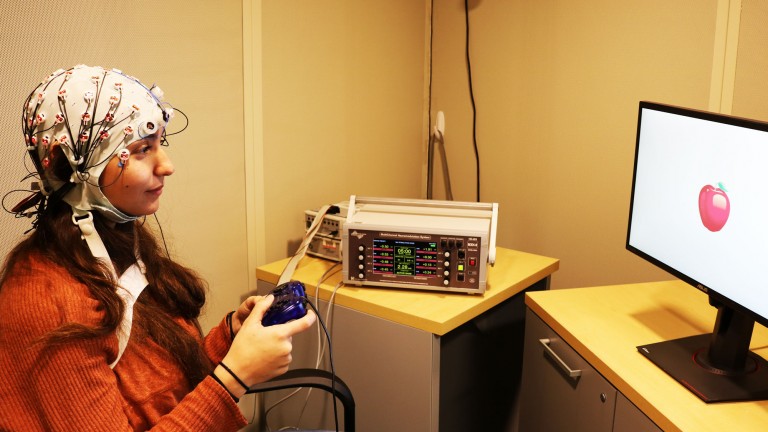Stimulating parts of the brain with electricity to get brain waves back in sync temporarily reverses the effects of age-related memory loss.
Our aging brains: Working memory, the way we hold information in our brains for a short period to help us carry out tasks, gets worse as we get older. This seems to be linked to how different parts of the brain work in sync with each other. As we age, these brain waves fall out of step, and working memory gets worse. This makes it harder to follow conversations, read, or concentrate.
The experiment: Scientists from Boston University tested young people and old people on a series of memory tasks. Unsurprisingly, the younger subjects did better. Then participants were fitted with an electrode-covered cap that stimulated two areas of the brain (the temporal and prefrontal cortex) with electricity for 25 minutes in a way that made the brain waves fall into sync. When the groups were tested again, the participants who had been stimulated were much improved in the tests—and were as good as the 20-year-olds. The effect lasted for at least 50 minutes, when measurements were stopped. The paper was published in the journal Nature Neuroscience yesterday.
What it means: The work suggests there may be ways of treating age-related memory loss, but the study will need to be repeated with more participants and as a proper clinical trial. There is also no evidence that the effects would continue after the experiment was ended. A DIY culture of using brain stimulation to increase focus already exists, but there has not yet been enough research into whether it is actually safe. Don’t try this at home, basically.
Sign up here for our daily newsletter The Download to get your dose of the latest must-read news from the world of emerging tech.

